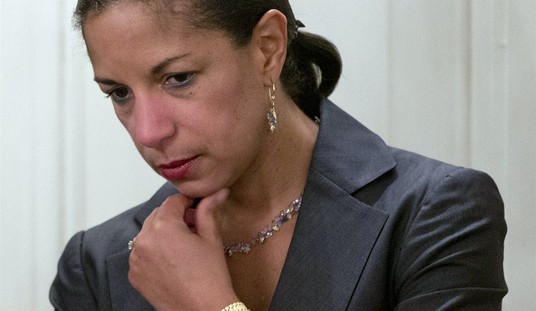Fresh off of claiming the scalp of Liz Mair (more on that later), The Website Bearing Breitbart’s Name issued another broadside yesterday consisting almost entirely of the fact that Michelle Malkin thinks Scott Walker has a lot of problems. I’m not going to link the piece because I’m done linking to Breitbart, as I view them as summarily unhelpful to the movement. If you want to read a website that performs the function that Breitbart himself would have wanted for the movement today, read the Washington Free Beacon instead.
But I think that the point of what Breitbart and Malkin are doing here needs to be engaged substantively, quite apart from the understandable negative emotional response generated from the fact that they combined efforts to get a political consultant who is widely popular in the online right fired.
At least facially, Breitbart and Malkin are only making the plea that Scott Walker needs to be “vetted,” and that conservatives shouldn’t automatically throw all their eggs in his basket. As far as that goes, I heartily agree. It is far too early in the primary season for anyone to be crowned as the winner and questions do exist about Walker’s viability as a candidate as well as his performance on the job. I trust that, in the final analysis, the debate season and the increased glare of the media will sort out if Scott Walker is wheat or chaff, in terms of Presidential material.
But really, it doesn’t take an especially prescient critical thinker to read the piece in question and come away with the impression that Breitbart and Malkin have already ruled Walker out as unacceptable and are trying to avoid saying so by just claiming that they want him “vetted.” The tone of a legitimately cautious and prudent person and a dedicated opponent posing as a legitimately cautious and prudent person are not easily confused.
This year, the predetermined attack on Walker as insufficiently ideologically pure converges with a critical mass of voter resentment over Republican failures of leadership in Congress. Scott Walker and [mc_name name=’Sen. Marco Rubio (R-FL)’ chamber=’senate’ mcid=’R000595′ ], the only two candidates with obvious chances of taking down the admittedly much worse Jeb Bush (on virtually all issues of import to Breitbart and Malkin, including especially immigration) are both especially vulnerable to this impulse because they depend for their electoral success in this primary on the very people who are most susceptible to the siren call of “REJECT ANY CANDIDATE WHO IS LESS THAN 100% PURE ON ALL ISSUES.”
I wonder how long it will take us, as a movement, to learn from the strategic mistakes of our past. A major reason why we keep nominating moderates for the Presidency is that these kinds of attacks on viable conservative alternatives leave the moderate as the only plausible alternative standing. While conservatives are dividing their support into increasingly narrow slices, the moderate voters unify early behind a single candidate and don’t go to pieces over one or two differences of opinion.
Jeb Bush, Mitt Romney, [mc_name name=’Sen. John McCain (R-AZ)’ chamber=’senate’ mcid=’M000303′ ], George W. Bush, Bob Dole, all in turn had this in common – their primary backers would abandon them if and only if they found a general election candidate they considered more viable, thus allowing them the luxury of abandoning some of the more absurd pandering that goes on in the conservative side of the aisle.
And as frustration with the GOP Congress and anger at Barack Obama’s usurpation has grown over the last 8 years, the screws have gotten ever tighter in terms of the tightrope a conservative candidate must walk or risk losing a significant chunk of needed voters who say with increasing fervor and volume that THEY WILL VOTE DEMOCRAT BEFORE VOTING FOR ANYONE WHO DEVIATES EVEN SLIGHTLY FROM MY BELIEFS ON ISSUE X.
It’s time we came to grips with a simple fact: Presidential elections are different from Congressional elections and we have to stop treating them the same.
I’m all about setting a Congressman or two on fire here and there to make a point. Even if doing so necessitates intentionally putting a Democrat in office. I’ve said so repeatedly. People who are running for Congress, though, of necessity have to appeal to a more narrow audience, both numerically and ideologically. They are more appropriately subject to ideological purity, especially in conservative friendly states, and are more likely to succeed despite being more conservative than their electorate because on a local level, enthusiasm and organization can play a much bigger role.
In a Presidential election, one of the features of the Electoral College is essentially preserving a two-party system that basically ensures that no one who is sufficiently far from the center of the country, ideologically speaking, will ever get elected. And on the whole, this is probably a positive thing. A system in which the chief executive position is essentially cobbled together from the most cohesive alliance of a dozen different political parties is essentially the system that has brought all totalitarians who rose through democratic forms of government to power (including, yes, Hitler). And regardless of whether you agree that it is a good idea or not, it’s in the Constitution and is here to stay for the foreseeable future.
This the reality people on our side have increasingly had trouble coming to terms with: any guy who agrees 100% with me is probably never going to become President. That is not to say that ideology matters none, or that we should not attempt to force the candidate rightward. But it is an acknowledgement that it is right and appropriate to demand less ideological purity from our Presidential candidate than we would from a Member of Congress who represents an extremely red constituency like [mc_name name=’Sen. Orrin Hatch (R-UT)’ chamber=’senate’ mcid=’H000338′ ] or [mc_name name=’Rep. Renee Ellmers (R-NC)’ chamber=’house’ mcid=’E000291′ ].
And it is also a reality that, if you are a conservative, the worst result in the 2016 primary (in terms of results that have a realistic chance of occurring) is for Jeb Bush to cruise over the regular spate of backbiting and infighting among the conservative candidates to the nomination. Jeb Bush has not just hired some staffers with questionable opinions on immigration, he himself personally is an open, avowed, and unapologetic open borders advocate – to say nothing on his positions on Common Core and a host of other issues of import to conservatives.
But even within the context of the Republican primary, not just anyone has a realistic shot at taking Bush down. The Duncan Hunters and Tom Tancredos of the world might check all the right boxes ideologically for some people but they are just never going to get it done. [mc_name name=’Sen. Ted Cruz (R-TX)’ chamber=’senate’ mcid=’C001098′ ] is probably the closest guy to me, ideologically speaking, in the expected field, but he is polarizing even within the Republican base to a degree that he cannot win, and even if he does, he will be manhandled in the general (precisely because he agrees with me so much). And while we all delude ourselves to the contrary the establishment choice continues to fundraise, and coalesce support, and stand there looking ever so reasonable as the parade of pretenders wanders onto and then off center stage.
Which is a major part of why the attack on Mair was such an asinine own goal: Running for President as a serious contender – as opposed to as a message candidate who wants some free air time during nationally televised debates – takes a massive amount of staff and consultants. Literally anyone who is going to mount a serious challenge to the Jeb machine is going to have to hire hundreds if not thousands of people by the time it is all said and done. At the end of the day, it is literally impossible for any candidate who is running a campaign that stands a chance of winning to ensure that every single staff hire and consultant has never said anything unorthodox. At the end of the day if you find people who are competent at their job and who are willing to carry your message instead of theirs, then you will take them.
I’ve known Liz Mair for the better part of a decade. Back in the early days of RedState she was a regular here. We often butted heads, frequently with some vigor, as she was never ashamed to disagree forcefully with any or all of us on the front page about various issues, including some that are of extreme importance to me. And yet throughout the years I’ve developed a more than grudging respect for her as a professional because she has worked tirelessly at the art of being gracious in disagreement. And I have known her to work for numerous candidates in the past who were more conservative ideologically than she was, and during the course of that employment she never carried any message other than what the candidate wanted carried.
All of which is to say, Liz Mair might be liberal in some regards as a Republican, but she works hard to get conservatives elected and does well at her job. Including, I might add, Scott Walker back when many of the people who called for her to be fired wanted Scott Walker to win his elections. This ought to have easily been enough for any person who was willing to give Scott Walker a good faith look to leave her alone.
Which brings us back to the issue at hand. Mostly, the complaints at issue are boiled down to a) Matt Boyle of Breitbart wasn’t treated with sufficient respect during the course of his digging on Mair, b) Walker now says he has changed his stance on immigration but hasn’t set that forth in particulars, and c) the Walker campaign hasn’t (for some reason) been inclined to answer any more of Boyle’s particular questions (some of which are, to put it charitably, not very good questions):
Malkin also stood up for the few reporters willing to pressure Walker to answer legitimate questions about Mair, and about his positions on issues like immigration and education.
“I believe conservative journalists should not be mocked for asking GOP candidates or their staffers unorthodox, ‘rude,’ and uncomfortable questions,” Malkin said. “That’s called vetting.”
The Walker campaign has essentially admitted that conservatives and Iowa-based leaders who criticized his hiring of Mair were right, since he allowed her to resign. Meanwhile, he’s refusing to answer basic questions about the governor’s position on immigration.
Walker said on Fox News Sunday after CPAC that he has “changed” on immigration. But he hasn’t laid out a policy viewpoint on the matter. His spokeswomen Kirsten Kukowski and AshLee Strong haven’t answered whether the governor thinks the government should kowtow to Silicon Valley and Wall Street by increasing H1B visas—or any other legal immigration increase—while record-high numbers of Americans are out of work. They also have refused to answer time and again whether the Wisconsin governor thinks Republicans should trust the U.S. Chamber of Commerce, Facebook’s Mark Zuckerberg’s lobbying outfit FWD.us, Sheldon Adelson, Bill Gates, or other open borders advocates when it comes to immigration policy.
In addition to that, Kukowski and Strong have also refused to answer whether they personally support—or whether the governor supports—the tactics that the now-fired Mair engaged in to attempt to defend herself while coming under criticism. Mair leaked a press inquiry this reporter sent her to Bloomberg Politics’ Dave Weigel, a practice that is highly frowned upon in the business of political communications and journalism.
The mind recoils in horror at the very thought.
Scott Walker and Marco Rubio are not perfect. Either, however, would be better than Jeb Bush. As would, for that matter, the cathartic value of showing the establishment that when it comes to Presidential elections they can’t just pick a candidate, anoint him, and sit back and wait for us to implode anymore. And while I would probably prefer a guy like Bobby Jindal in a perfect world, I’m willing to accept a less perfect alternative for the sake of improving on the lot we have.
And if we ever expect things to get better, that’s a message we will have to take to heart sooner rather than later.













Join the conversation as a VIP Member